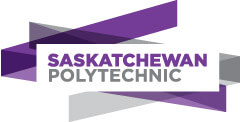About Cad/cam Engineering Technology Diploma in Saskatchewan Polytechnic
Program Overview
Imagine you could redesign anything to fit a specific need—make it smaller, bigger or stronger. Now imagine if you could actually “print” a 3D prototype? As a computer-aided design and manufacturing (CAD/CAM) engineering technologist, you’ll help turn great ideas into practical plans.
It’s a career that applies science to mechanical design, so it helps to have an analytical mind and good math skills. You’ll be involved in everything from design and drafting, to fabrication, 3D printing and prototype development.
The CAD/CAM Engineering Technology program is a two-year diploma offered at Saskatchewan Polytechnic, Saskatoon Campus, Idylwyld Dr. Develop the knowledge and skills you need to put computer and engineering principles to work. You’ll learn to create, modify and refine proposed parts interactively, then view emerging designs on a display terminal where you can magnify, rotate, copy, stretch and manipulate it. You’ll learn to create instructions for computer numerically controlled (CNC) machines to automatically produce finished parts.
Saskatchewan Polytechnic's experienced instructors and leading-edge lab equipment provide an exceptional hands-on learning experience. The emphasis on lab work includes instruction in:
- CAD/CAM related engineering disciplines
- CAD/CAM hardware, software and computer networking
- operating machine tools (including CNC)
- quality assurance, concurrent engineering
- rapid prototyping
Diploma to Degree
Use your diploma to ladder into a science degree at Athabasca University in Alberta, an engineering degree at Lakehead University in Ontario or a technology degree at Memorial University in Newfoundland or a mining engineering technology degree at Queen’s University in Ontario.
Your Career
Saskatchewan Polytechnic prepares you to work in both traditional and computer-aided engineering fields.
The manufacturing field is a big employer. You could work in engineering design, drafting, quality control and programming/operating CNC machines. Consulting engineering firms hire grads to work in design and drafting, while research and design firms employ grads in product design, prototype development, solid modeling and advanced stress analysis.
| Sample Job Title |
NOC Classification1 |
Earning Potential2 |
| Mechanical Technologist |
Mechanical Engineering Technologists and Technicians (2232) |
$42,700 - $118,600 |
| CAD/CAM Engineering Technologist |
Drafting Technologists and Technicians (2253) |
$44,000 - $83,200 |
| Design and Drafting Technologist |
Drafting Technologists and Technicians (2253) |
$44,000 - $83,200 |
Academic qualification equivalents:
- Grade 12 with a minimum of 60% in Pre-Calculus 30*, and in Physics 30
English language requirements (one of the below):
- IELTS : Overall minimum score of Band 6.5 with a minimum score of 5.0 in each component.
- TOEFL : An overall minimum score of 81 on the Internet-based Test of English
- PTE : A minimum score of 63 with minimum component scores of 50.
Saskatchewan Polytechnic Highlights
| Type |
Public |
| Campus Setting |
Urban |
| Application mode |
Online and Paper mode available |
| Graduation rate |
62% |
| Acceptance rate |
96% |
| Number of Students |
16,008 |
| Overall cost of living |
14,762 CAD |
| Academic calendar |
Semester based |
| % of International students |
6% |
| Number of campuses |
4 |
| Medium of instructions |
English |
| Undergraduate Tuition fee |
14,044 CAD |
| Postgraduate Tuition fee |
16,426 CAD |
| Cost of living |
694 -1147 CAD per month |
Saskatchewan Polytechnic First-Year Tuition Fees And Living Expenses For International Students
Over the course of one academic year, the following graph displays tuition and living expense estimates in Canadian currency for one full-time international undergraduate student. Please bear in mind that these are only estimates; actual pricing will vary depending on your needs and preferences. Other factors to consider include currency changes, visa and study authorization fees, and vacations back home.
- For international students, the overall fees will range from:-
| Particulars |
Amount |
| Administrative fees |
50.00 to 150.00 CAD |
| Application fees |
150 CAD |
| Student association fee |
95.00 to 445.00 CAD |
| Non-refundable fee at the start) |
1,000 CAD |
| Tuition fee range |
6,195 to 18,089 CAD |
| Laboratory fee |
100.00 to 409.00 CAD with no fees for
some courses which do not have a lab service. |
| Books and Supplies |
200 to 3,725 CAD |
| Technology fee |
50 to 146 CAD |
- For a student of Saskatchewan Polytechnic the required financials (Cost of Attendance) can be:-
| Description of Financials |
Amount in CAD |
| Average cost of tuition |
11245.77 CAD |
| Cost of living |
10799.39 CAD |
| Application fee |
150 CAD |
| Estimated total (per year) |
22,195.16 CAD |
